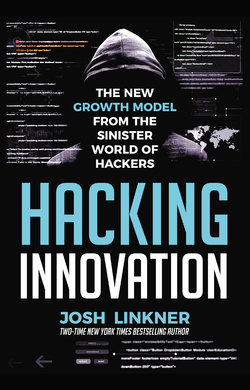Читать книгу Hacking Innovation - Josh Linkner - Страница 5
На сайте Литреса книга снята с продажи.
NOT IMPOSSIBLE
ОглавлениеDaniel’s life changed with the thunderous crash of an explosion. A boy living in the Nuba Mountains in war-torn South Sudan, Daniel lost both his arms when bombs fell near his village. Life in his situation was hard enough, but with no arms he needed constant help for even the most basic tasks. In a Time interview, he tearfully said, “If I could die today, I would, so I will not be a burden to my family.”
Struck by Daniel’s profound and heartbreaking remarks, Mick Ebeling decided to start hacking. More than 8,000 miles away in Venice Beach, California, Mick and his team at Not Impossible Labs met to discuss Daniel’s plight. This is exactly the kind of challenge they live for.
Mick was a successful film producer, animator, and special effects artist when he decided to reinvent himself. While he enjoyed his craft and was earning a great living, his heart led him in a new direction. He deeply felt the plight of those around the globe suffering with challenges that felt “impossible” to overcome. So in 2009, he launched Not Impossible Labs, which takes on seemingly impossible missions and then uses hacking principles to conquer them. Once a problem has been identified, they crowdsource solutions from inventors, technologists, and dreamers around the globe. They seek to develop innovative solutions that can ultimately be replicated and scaled, all for the sake of improving humanity.
According to the Not Impossible website, “The ability to obtain healthcare, literacy and technology shouldn’t ever be limited by finances, geography or physical ability. Along with our community of passionate and talented engineers, makers, idea generators, and storytellers, we’re making the impossible, Not Impossible.”
In Daniel’s case, Mick and the team got working on the problem of providing Daniel with affordable prosthetic arms so he could feed himself, contribute to his community, and regain his dignity. Using many principles and approaches we’ll cover throughout the book, Not Impossible Labs was able to create a solution for Daniel using a 3-D-printed prosthetic arm. Their journey was not without obstacles, but ultimately, they not only helped a young boy across the globe, they also leveraged their invention to help thousands of others. These low-cost prosthetics are now being used in developing countries, directly impacting thousands. The efforts have been magnified further by Not Impossible’s global reach and their ability to shine a light on important issues through masterful storytelling. This small organization, with a tiny team and limited resources has not only helped kids in war-torn regions, they’ve helped thousands of others around the world who were facing “impossible” situations of their own.
Mick’s unorthodox practices embody hacking at its finest: a burning curiosity and willingness to confront conventional wisdom. Democratized ideation from a diverse and vast array of contributors, rather than relying on single bets from entrenched “experts.” Conducting low-cost, controlled, high-volume experiments instead of launching a single, bet-the-farm initiative. Finding a hole in the problem and then exploiting it to its logical end. Believing that no barrier is impenetrable.
